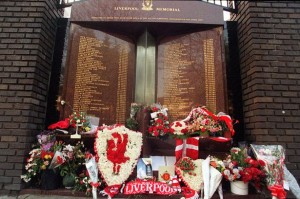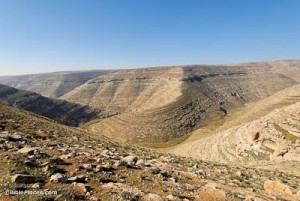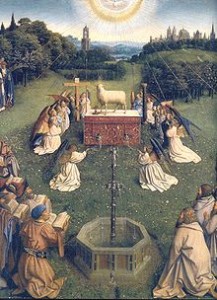What is to be done on Boxing day, or as the Irish call it, St. Stephen’s Day? For anyone with a temperament and physical needs like mine, it takes a good walk to settle the body down after the joys of the different food and drink; not that there was any excess, but my body, at least, was not used to it. So, in the pouring rain, Wednesday afternoon was devoted to a good hard walk around Leyland. I needed it, also, to clear my head and heart of many things; as I meandered, I found myself reflecting on the ‘Our Father’. It was a rather strange meditation.
God, I felt, is so loving yet strange. I think I can tell for myself he loves me when I think of the effects of his love. He has shown me his love through the spiritual gifts he has given me; they almost force me to believe in his loving care for me, at each and every moment. Above all, this means that I know that, if I do my part, I can be sure of having the presence of Jesus, with me and in me, because he has given me the gift of being united with many others in his name; this includes members of my community, other religious, lay people, men and women, young and old – and not forgetting various other clergymen, for: “Where two or more are gathered in my name there am I among them” (Mt. 18: 20)
Also, he not only allows me to start again always, when I desert him, but welcomes me back each time with a wonderful smile of love; hence, in every way, he has looked after me physically, but more to the point, as far as I can tell, and only because of his love, I am not in bad shape psychologically and spiritually. I am able, I hope and pray, to make a contribution as a monk, and as a priest, for his Kingdom. Occasionally, he gives me a ‘knock’ or ‘two’, perhaps to remind me of my vulnerability as a human being, my loneliness (in one sense), my mortality, and that one day – perhaps soon – I will meet Jesus, just as St. Stephen did, and as is described in the Acts of the Apostles.
God has allowed all this to happen because he has given me the obedience to be a monk, working on the parish; how hard it would be to have these signs of God’s love, in the same way, had I always been a monk in the monastery – and this despite the fact that God has called me to a monastic vocation? As these thoughts cross my mind, I cannot help but think of predecessor monks like Abbot Herbert Byrne, who died in Leyland, or the great Benedictine missionary saints like the Englishman, St. Boniface, who were missioners.
 |
The strange beauty, yet hallowed bleakness, of this December Scene puts me in mind of the unknowability of God – especially at this time of year.
The very strange part of all this – and I can assure you it’s a puzzle worth the effort – is that although I can see the effects of God, and his love, in my life, I am not sure that I know God, in himself, at all. As I walked around Leyland in the rain, I found myself praying the Our Father, and got stuck on the first two phrases: “Our Father……” “who art in heaven”….. The puzzle sometimes gets even more puzzling!
Who is God? God is immense and I am just a tiny creature. I cannot understand his logic, except in so far as, I look at the absurdity of the life of Jesus. I know he is God made man; he calls himself: “The Son of Man”, and I cannot get my head round it! Clearly, he emptied himself of his ‘Godhead’, but, as a baby, I wonder if he had any awareness of his divinity? Is it possible that the emptying of his own “persona” – (I think) we define as “The Word of God” – mean that God did not ‘erupt and explode’ into his life as a baby?
His ordinary life must have been some kind of cruel torture, as he saw the way people of all sorts, ignore God and his Love. Absurdity in extremis! Then, at the end his own Passion and Death on the Cross, with that sense of abandonment, by God the Father – who had been the whole purpose behind the previous 33 years, or so, of life – surely that must have been doubly, or infinitely, absurd. My head cannot get round this at all – try as it may! So, I go back to the effects of God’s love in my life. I know Him, but do not know Him at all. I love Him – or try to do so. Of one thing I am sure, that that Love is his gift. I want to love him more than any other, or any thing – but do I?
To conclude, all this is the result of my musings on Boxing Day. I share them with anyone interested.
Father Jonathan







